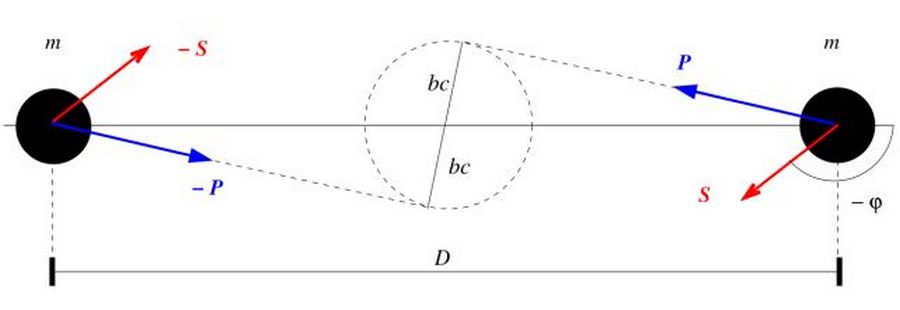According to new research, black holes can fly apart in space at an incredible speed that approaches 10% of the speed of light. This is an extremely important discovery in the field of astrophysics, which opens up new possibilities for understanding the dynamics of black holes and their collisions.

The study, carried out by James Healy and Carlos O. Lousto of the Rochester Institute of Technology, indicates that when two black holes approach, the result is not necessarily the formation of a stationary binary system. A collision can cause recoil, which causes the newly formed black hole to move along a new trajectory at a sufficiently high speed. This effect is due to the uneven distribution of gravitational energy during the collision, which may be due to the unequal masses of black holes or their spins before the merger.
The most interesting thing is what kind of kinetic energy a newly made black hole receives. According to scientists, after an energetic collision of two black holes, the new object accelerates to a speed of about 28,562 km/s, which is more than 100 million km/h. The new discovery of the motion of black holes at such a high speed goes beyond previous theories and calculations. Previously, it was believed that the maximum speed for these objects could be a speed of 5000 km/s.
Healy and Lousto used a supercomputer to perform 1381 complete numerical simulations of collisions between two equally massive black holes with opposite spins directed along their orbital plane. This was how they determined the maximum velocity of a black hole in the Universe.
Black hole at lightning speed
How fast is it? For comparison, to escape from the influence of the gravity of the Milky Way, it is necessary to develop a speed of 497 km/s. The fastest object ever created by humans is the Parker Solar Probe, which in 2021 reached a maximum speed of 644 thousand km/h.

Therefore, a black hole accelerated to maximum speed is fantastically fast. Fortunately, these are only theoretical calculations and such speeds are very unlikely in practice. But the discovery of extreme limitations defines the arena for future research.
To date, only one high-speed black hole has been discovered, which, according to scientists, is the product of such a collision. It is moving at a speed of about 1542 km/s.
At the end of the study, the scientists note that knowledge about the dynamics of black holes is extremely important for our understanding of the Universe. They hope further research will reveal even more secrets of these mysterious objects of space.
Earlier we explained what black holes were and how they appeared.
According to Physical Review Letters
Follow us on Twitter to get the most interesting space news in time
https://twitter.com/ust_magazine
